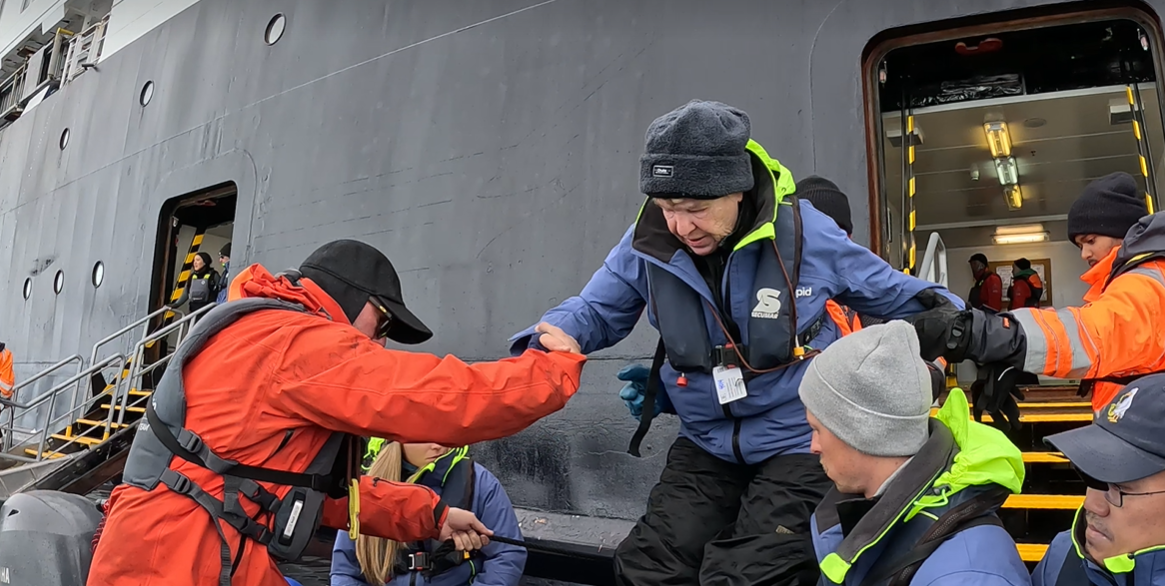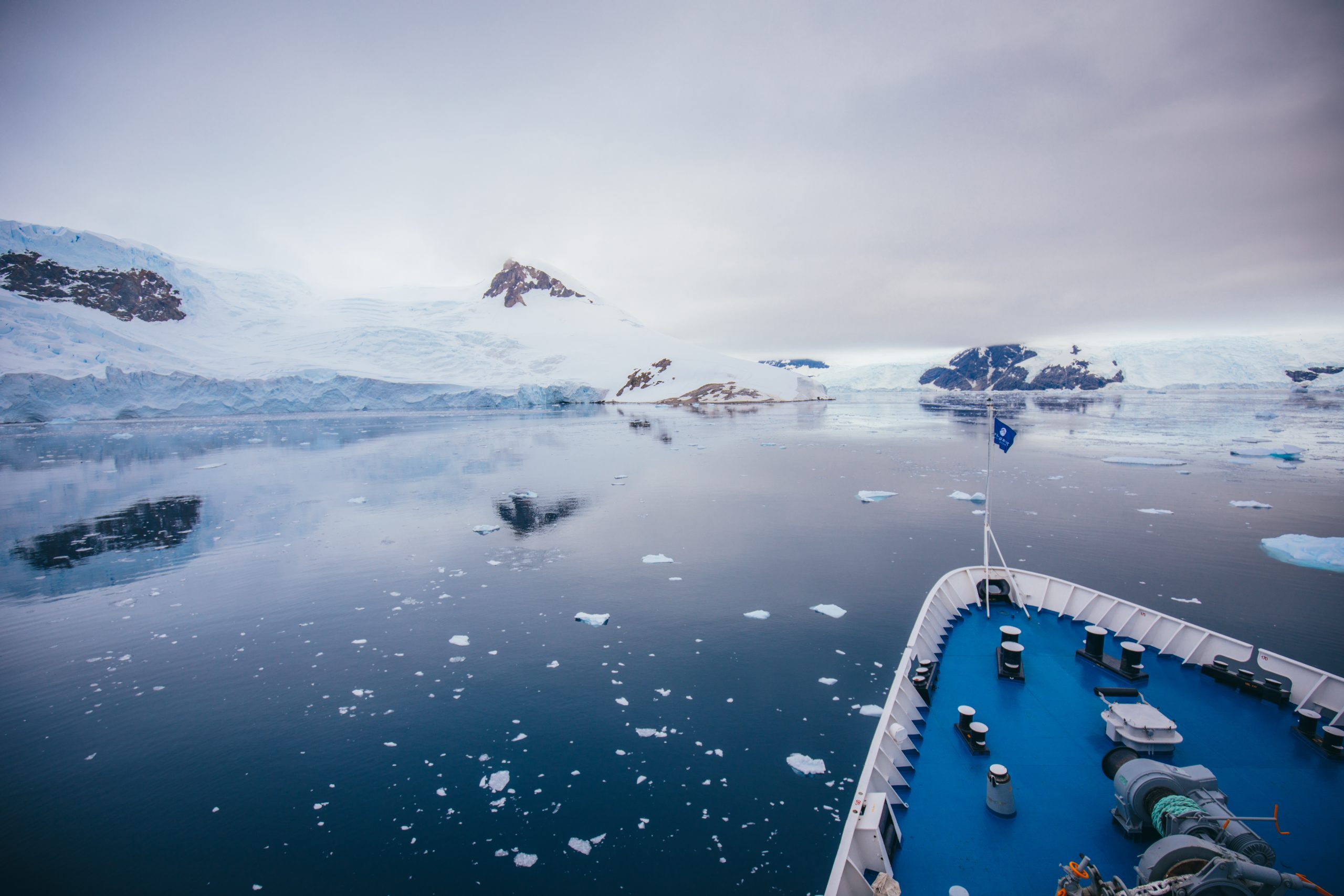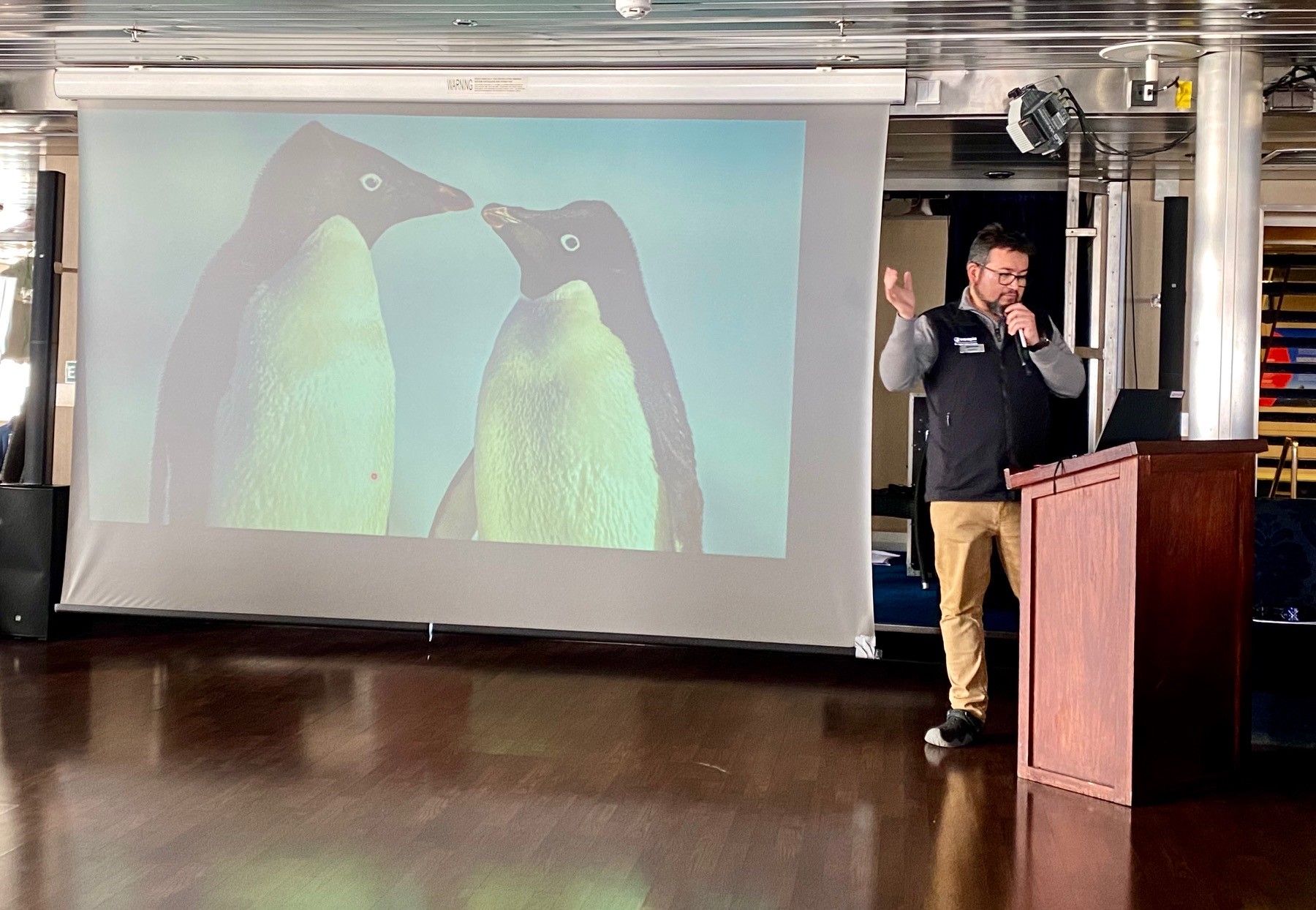How Much Fitness Is Required to Travel to Antarctica?
Do I need a high level of fitness to travel to Antarctica? It’s a question we’re often asked, but the answer might surprise you! Generally, an expedition cruise is not as strenuous as you might imagine, as any guest who is in good health and mobile can make the voyage – and enjoy it!
If you’re thinking of planning a trip to Antarctica, here’s everything you need to know about fitness and health requirements.
What are the fitness requirements for an Antarctic cruise?
So, just how much fitness is required to travel to Antarctica? Here’s the truth—most travellers with an average level of fitness are well suited for Antarctic travel. Antarctic cruising is considered a ‘light adventure’, with minimal levels of fitness required.
Passengers will need to embark, disembark, and move around the ship unassisted, however, handrails are found throughout every vessel. You’ll also want to be able to step from the ship into the zodiac boat, which will be moving up and down in the water. Your expedition crew will help you, but it’s useful to be comfortable with the movement of the zodiacs. Before the first expedition, the crew will give a full briefing of what to expect and how the boarding process works.

We spoke with Chimu guest Eileen Britcher, who travelled onboard the Ocean Endeavour in January 2023 to get insight on what the experience was like in terms of fitness and mobility.
“Getting on and off the zodiacs was a piece of cake,” Eileen explains. “Staff are so helpful and very obliging. I did not have a problem travelling in the zodiacs. Getting off the zodiacs – no problem (just swing the legs into action and all is good).”
While the zodiacs are in motion, you’ll hold onto them via a rope, and when it’s time to get off the vessel onto shore, the expedition crew will give you a hand. Disembarking, you may need to walk through shallow water and uneven ground across rocks or gravel – but there is always someone close by to assist if you’re feeling unsteady!
Some landing sites have hills and elevation changes, but you can decide for yourself how far you want to venture. Eileen says, “The landings were fine. Only found one climb a bit hard and that was because we had fresh snow the night before. So I just turned about and got back on the zodiac. I WAS IN HEAVEN when I was watching the amazing penguin families. They are so fascinating.”
Remember – your Antarctic adventure is yours and yours alone, so you can always tailor it to whatever you’d like to be! An Antarctic cruise doesn’t have to be a constant adrenaline rush, as there are so many different ways to enjoy and experience the continent!
Are there medical facilities in Antarctica?
Antarctica, as you can probably imagine, is one of the most remote and desolate places on the planet, with very limited medical facilities. However, there is a doctor onboard every ship and they’re always there to help if you’re not feeling well or have an injury.
In the case of more serious medical situations, evacuation off the ship may be required to a medical center in Ushuaia or to King George Island. This is why Chimu, and all Antarctic tourism operators, require guests to have comprehensive travel insurance. Evacuations can cost in the many tens of thousands of dollars, if not more, so travel insurance is absolutely essential.
However, you need not worry too much, as most medical incidents onboard are mild. A 2020 research study of Antarctic cruises found dermatological and skin issues to be the main reason a person would seek out the help of a doctor onboard, followed by soft tissue injury and a general feeling of being sick. Seasickness was actually only the 5th reason, proving it’s not as serious as you might think for most passengers.

Should I be concerned about seasickness?
Speaking of seasickness – how bad is it, really? The true answer is that it varies, based on each voyage’s conditions and an individual’s reaction to the movement of the ship. The Drake Passage is infamous for its unpredictable conditions, but your ship’s captain will also do everything possible to minimise disturbances.
If you’re worried about rough seas, bring along some seasickness medication and take it ahead of time, while the seas are still calm (before you enter the Drake Passage), so the medication can start working ahead of time. You can also speak to the onboard doctor for seasickness advice.
For most passengers, seasickness is easily managed. However, for some travellers who may have vertigo or ear and balance issues, ask your doctor how you might be impacted by seasickness.

I’m not sure if I’m fit enough to visit Antarctica – What should I do?
If you’re in doubt, the first port of call is to talk to your doctor. They’re the only ones who can give you medical clearance and they can answer your questions or address your concerns. Every person’s fitness and health is unique, so seeking out personalised advice from a medical expert is essential so they can give you a medical clearance for travel, if necessary.
Still have Antarctica questions? In that case, it’s a good idea to speak with Chimu’s Destination Specialists. They can answer any questions you might have about a specific cruise and how it might work for you. They’re true Antarctic experts and can advise you based on their experience on the continent.
Once you’re onboard, let the expedition crew know about your concerns or limitations. They are extremely experienced in working with guests of all backgrounds and will help you have the best possible experience onboard. That way, they can make accommodations to ensure you can still get the most out of each day.
Most importantly, you also should listen to your body, take breaks when you need to, and try to get enough sleep. Your crew will provide a full briefing the night before of the next day’s activities, which will include information on conditions and terrain at the proposed landing sites. If a landing site has a steep incline, for example, you can still join in and stay on the flat area near the beach rather than climbing – you’ll still see plenty of wildlife!
Or, if a zodiac excursion in snow or wind makes you uncomfortable, it’s totally ok to skip that one and stay onboard. You can always cater your experience to your comfort levels and still have an amazing time!
If you’re feeling on the fence about an expedition cruise to Antarctica, our parting advice is that we can all always accomplish more than we think we can! You might surprise yourself at just how much you can do on your adventure.
Says Eileen, “I have done the seven continents now so I am happy. I didn’t find it hard at all to travel a long way, but that is what you have to do if you wish to see the world.
I found the whole experience an amazing journey.”

Talk to one of our experienced Destination Specialists to turn your Antarctic, Arctic and South American dream into a reality.
Contact us